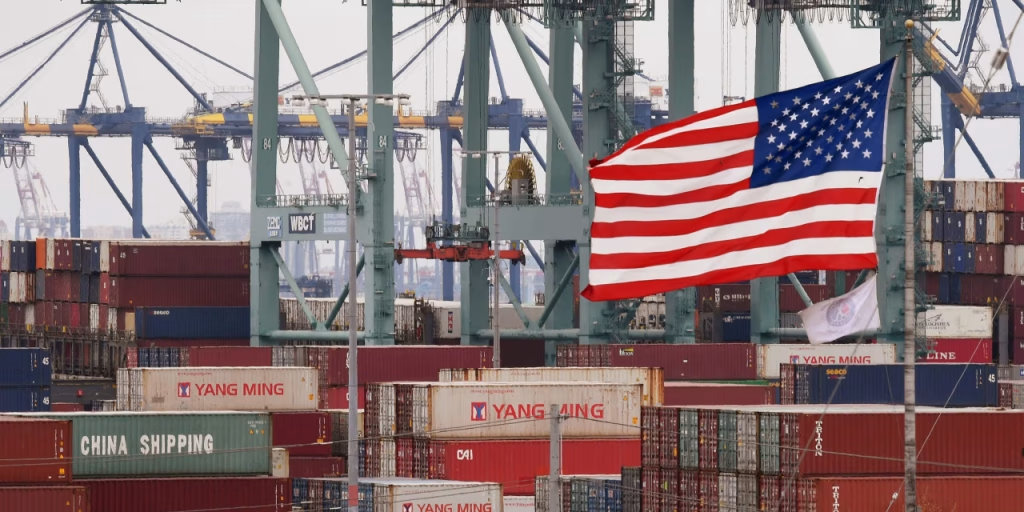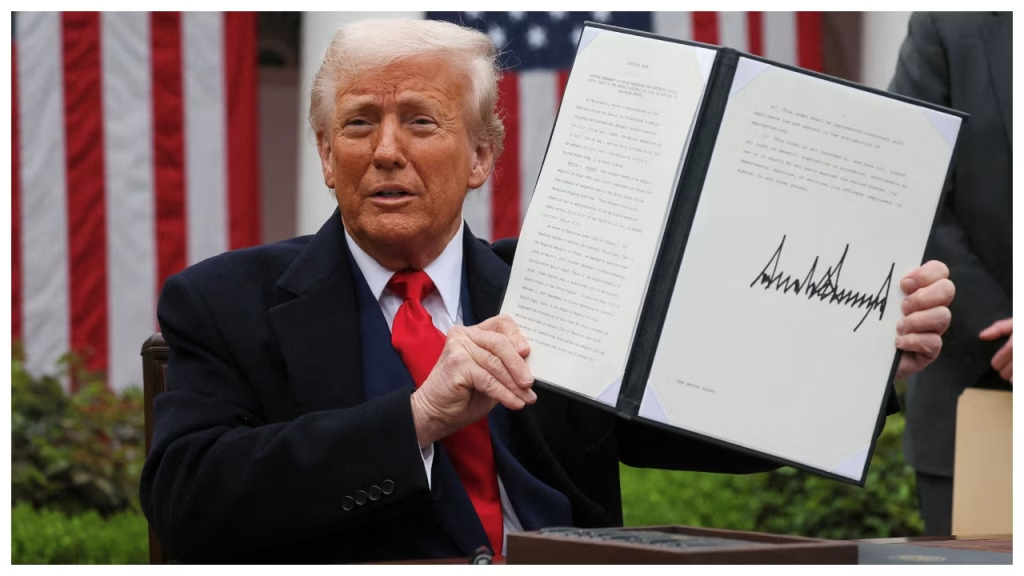In the wake of President Donald Trump’s sweeping new tariffs, over 50 nations have reached out to the White House to initiate trade talks, according to top U.S. officials speaking on Sunday.
The outreach comes amid growing concern over the economic turbulence sparked by the administration’s aggressive shift in global trade policy.
While Trump’s advisors framed the tariffs as a bold and strategic move to reassert American power in global trade, last week’s market reaction told a more anxious story.
U.S. stocks plunged by nearly 10%, wiping out almost $6 trillion in market value within just two days of the announcement. The steep decline rattled investors, triggered alarm among economists, and fueled fears of a looming trade war.

Still, administration officials appeared on Sunday morning talk shows to defend the president’s decision. Treasury Secretary Scott Bessent, speaking on NBC’s Meet the Press, argued that the tariff move had created a unique opportunity for the U.S.
READ ALSO: Macron Urges ‘Strong Action’ as Russia’s Missile Strike Kills Nine Children in Zelensky’s Hometown
“He’s created maximum leverage for himself,” Bessent said, noting that more than 50 countries had begun trade negotiations since Wednesday’s announcement.
However, Bessent and other officials declined to name the countries involved or provide specific details about the ongoing discussions—raising questions about how the administration plans to manage what could become a sprawling and complex web of negotiations.

One of the few countries to publicly outline its position was Taiwan. President Lai Ching-te announced on Sunday that Taiwan is prepared to offer zero tariffs as a starting point for talks with the U.S.
Lai also pledged to reduce trade barriers and increase Taiwanese investment in American industries—moves clearly intended to build goodwill with Washington.
READ ALSO: Southampton Relegated After Loss to Spurs
Despite the market turmoil, Bessent downplayed the economic risks and dismissed concerns about an impending recession.
“We could see from the jobs number on Friday—that was well above expectations—that we are moving forward,” he said. “So I see no reason that we have to price in a recession.”

But not everyone is convinced. Economists and major investors have largely blamed the stock market nosedive on Trump’s abrupt tariff policy. Many experts, including the U.S. Federal Reserve’s leadership, warn that higher tariffs risk fueling inflation and slowing down economic growth.
JPMorgan analysts have already downgraded their forecast for U.S. GDP growth this year—from 1.3% to just 1.0%. They also predict the unemployment rate could rise to 5.3%, up from the current 4.2%.
Trump’s decision to impose broad-based tariffs caught many by surprise—including Wall Street—largely because the scale and intensity of the move exceeded expectations.

In response, China and other nations have issued retaliatory tariff threats of their own, raising the stakes for global trade and further rattling markets across Asia, Europe, and North America.
As Monday approaches, with Asian stock markets bracing for more volatility, the world watches closely. Trump’s tariff play may have opened the door to a wave of trade talks—but it has also introduced fresh uncertainty into an already fragile global economy.
Discover more from Scoop Hub
Subscribe to get the latest posts sent to your email.

